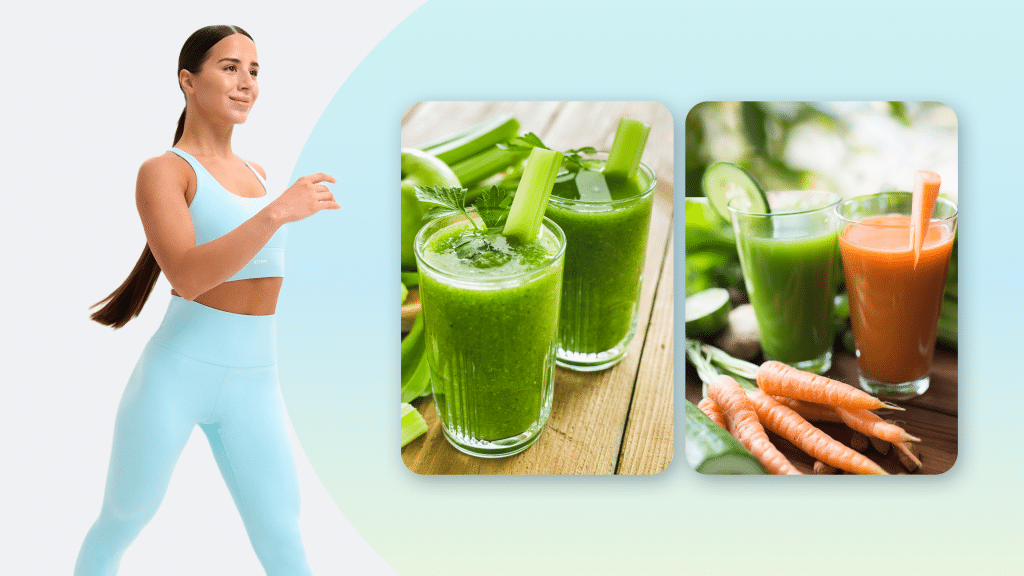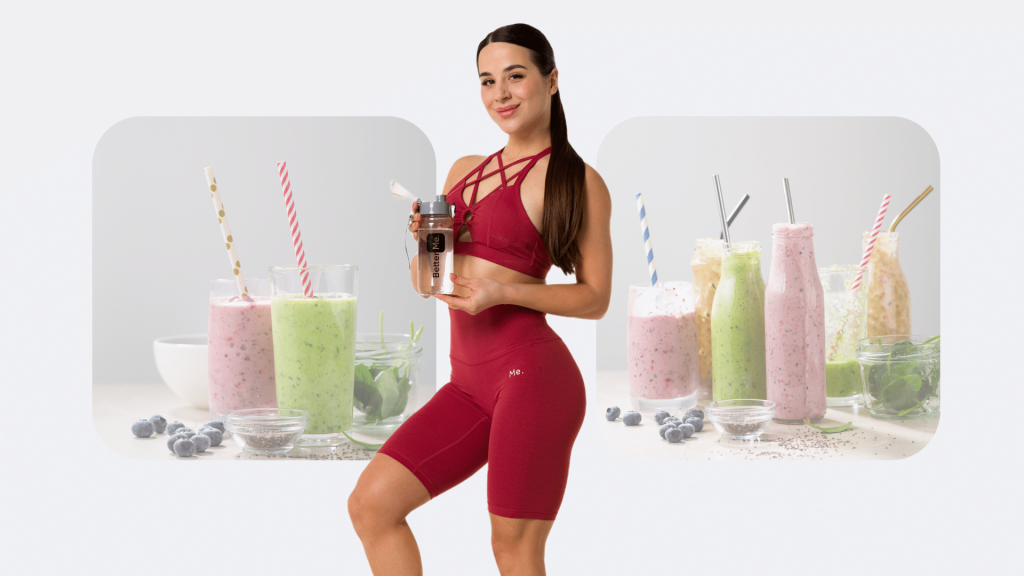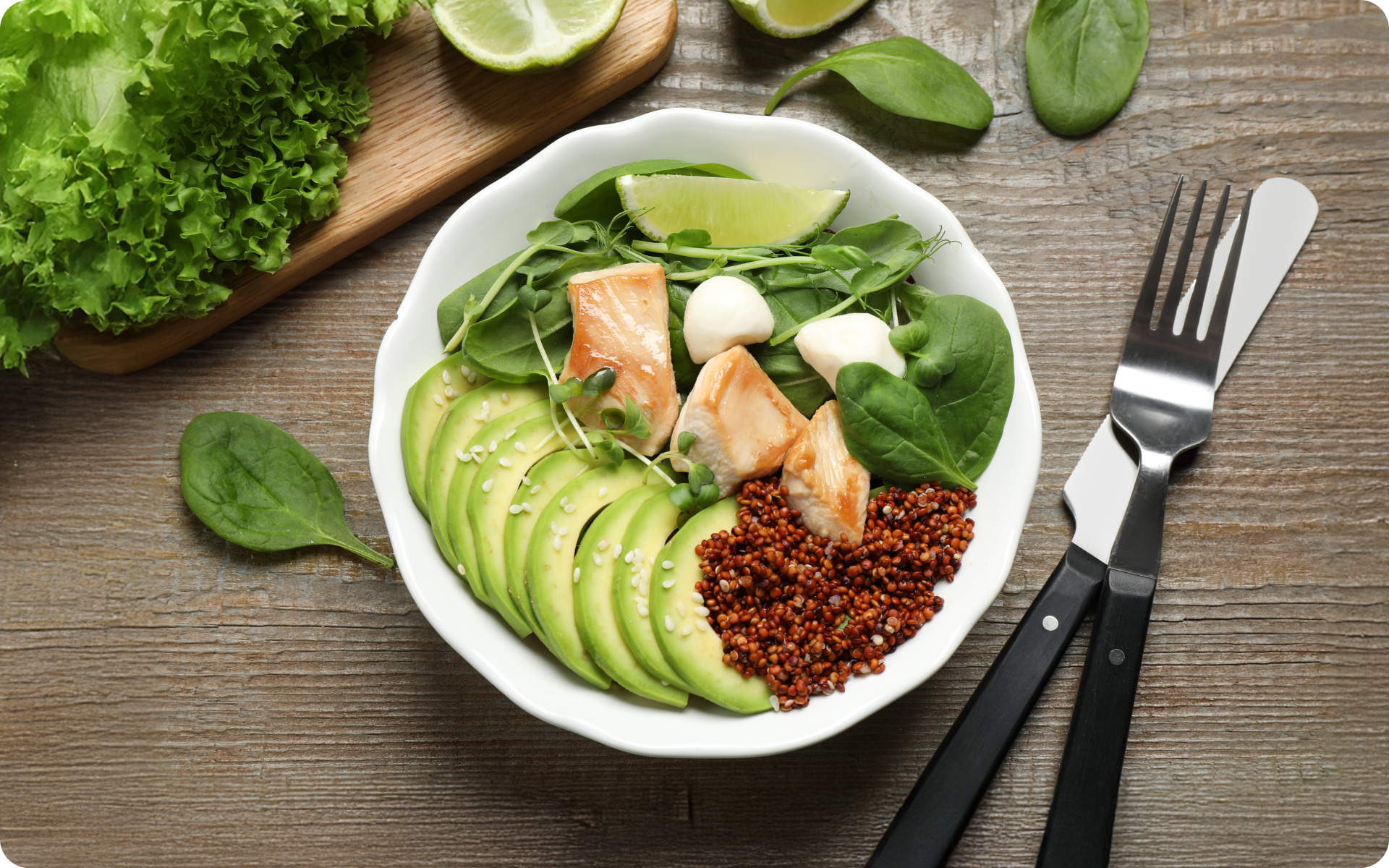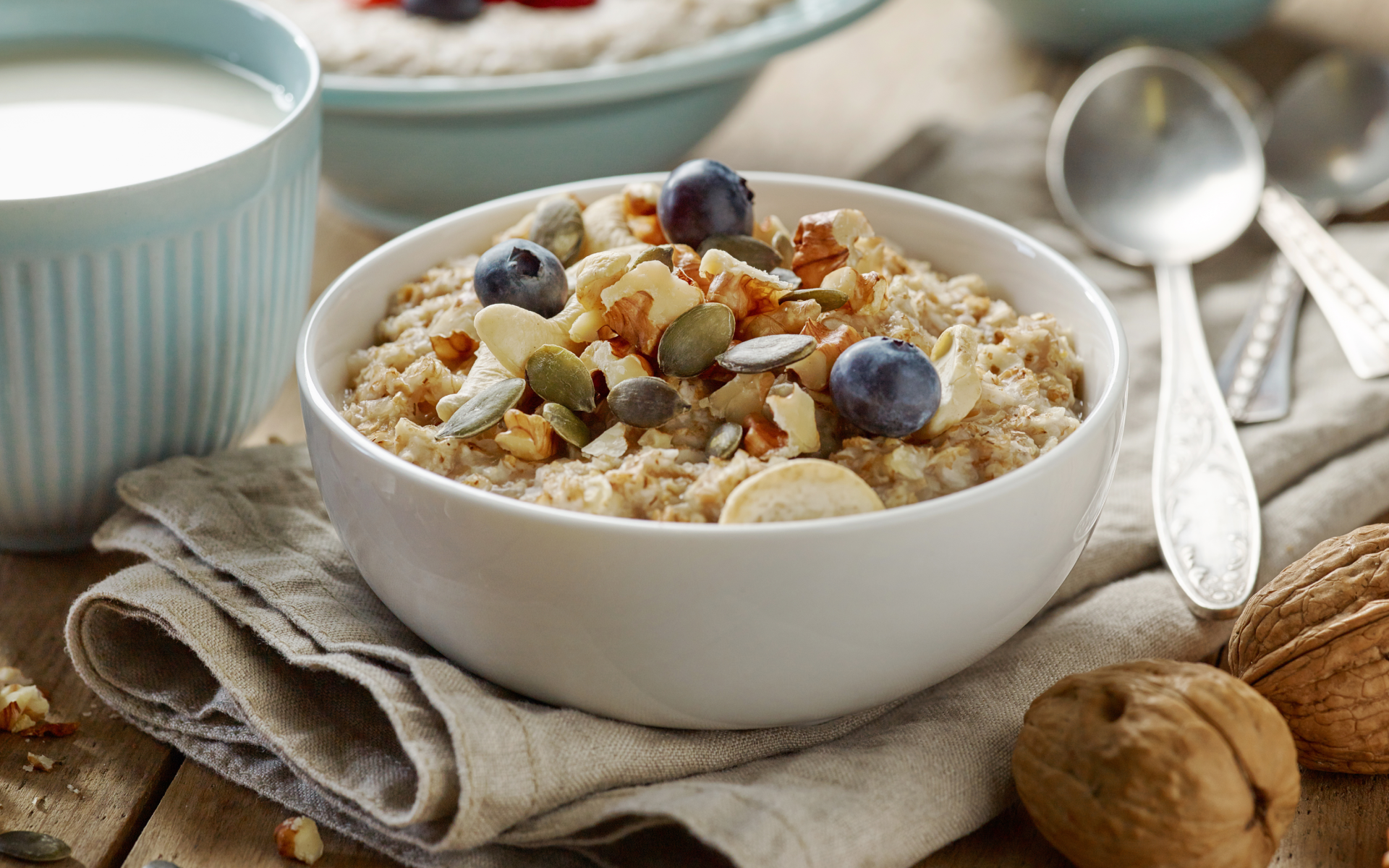After having one too many beers and pizzas over the weekend, your body feels more sluggish than ever. You’re perhaps wondering whether a 5-day juice cleanse would make you feel better. It’s understandable to want to reset your diet, particularly after making poor food choices for a while.
In recent times, everyone has been raving about “juicing” to “detox” and lose weight. What are juice cleanses? Do they work? Are they safe? We’ve compiled the latest research and commentary from health experts. Here is what you need to know before you go on a juice cleanse.
What Is a Juice Cleanse?
A juice cleanse is a liquid diet that typically involves consuming only juices from fruits and vegetables. It significantly restricts the calories you consume. Juicing involves more than blending fruits and vegetables – you must also separate the pulp from the liquid. Normally, cleanses last for 3-10 days.
Do Juice Cleanses Work?
Advocates of this diet bank on the nutritional profile of fruits and vegetables. They claim that juicing offers your body a variety of elusive nutrients in a form that is easy to absorb.
Furthermore, they claim that going on such a diet allows your body to get rid of “toxins” that have accumulated over time.
However, there is one glaring misconception about juicing and weight loss that has been fuelled by pop culture. Social media endorsements make juice cleanses seem like a one-size-fits-all weight loss strategy. Many have wondered: why put in hours on the treadmill when you could simply drink juice and call it a day?
The truth is that a juice cleanse isn’t a shortcut to weight loss. No scientific research supports the efficacy of juice cleanses for weight loss or any other health benefit. According to the National Center for Complementary and Integrative Health, there have only been a small number of studies on the efficacy of cleansing programs (2). The studies are small in size, poorly designed, and not peer-reviewed.
So, is a juice cleanse pointless? Kind of. But you can still give it a try for a short amount of time if you’re curious, as long as you eventually go back to regular eating habits. There’s a method to the madness. Let’s break it down for you.
If you wish to free yourself from all the extra pounds that have been weighing you down for way too long, start using the BetterMe: Health Coaching app and overhaul your entire life!
What to Expect on a 5-Day Juice Cleanse
If you’re interested in the 5-day juice cleanse to lose weight, we highly recommend that you look into healthy, balanced meals instead. That being said, juices are a great way to add a variety of vitamins and minerals to a healthy balanced diet. More importantly, you can go on a so-called “cleanse” to reinforce certain healthy eating habits.
By avoiding sugar, caffeine, and ultra-processed foods you get a head start on healthy eating. The 3 or 5-day juice cleanse gives you a chance to gradually reintroduce healthy foods. What happens to your body when you survive on juice for days? Here’s what you should expect:
Day 1: You Might Miss Chewing
On day one of your juice cleanse, you may think too much about eating. As meals are habitual, such thoughts are unavoidable. You may also miss chewing as you get used to surviving on liquid all day. The thoughts of food and snacks can be distracting, but they usually subside eventually (3).
It’s important to listen to your body during the cleansing period. Learn how to discern hunger from boredom. If you feel genuinely hungry, it’s okay to take a healthy snack. Don’t be too restrictive in your 5-day plan; restrictive diets have been proven to backfire (4).
Day 2: You Might Feel More Energetic During the Day and Alert at Night
On day two of the cleanse, you may feel a burst of energy (3). This is largely subjective and will vary from person to person.
At night, you may have difficulty sleeping (3). If you’re feeling really hungry, your body may fight your efforts to relax and fall asleep. You may make more trips to the bathroom, which will disrupt your night and keep you awake.
Read more: 2-Day Fast For Weight Loss: A Simple Metabolism-Boosting Technique
Days 3-5: You Might Feel Cold and Other Symptoms
As your body is being deprived of food, you may experience some alarming symptoms. You might feel one or more of the following:
- Cold
- Flu-like symptoms
- Body aches
- Back pain
- Exhaustion
- Irritability
- Low concentration levels
The discomfort people feel at this stage varies from one to the next. It’s always a good idea to listen to your body and eat something if you think you need to.
What Is the Best 5-Day Juice Cleanse Plan?
The 5-day juice cleanse takes on many forms, but typically involves drinking a certain amount of juice each day. The juice ingredients vary from one day to the next. Regardless of which juice recipe you prefer, below are 4 important steps your plan must have:
Step 1: Pre-Cleanse
Waking up with a hangover one morning and starting a juice cleanse is a terrible idea. No matter how urgently you feel you should hop onto the trend, take time to prepare for it. A pre-cleanse is a way of easing into the juice diet. It entails gradually switching to “clean” eating to get your body accustomed to the idea.
How long you pre-cleanse depends on how your typical diet is, according to juicing experts (5). Ideally, they suggest you should “clean up” your diet for 2-7 days before embarking on the cleanse. If you’ve been eating healthy foods for a while, a 1-2 day pre-cleanse may be sufficient.
If you’ve been a junk food enthusiast, spend 7 days switching to healthy alternatives. If you eat healthy food most of the time but occasionally indulge in junk food, 3-4 days of pre-cleansing are recommended by juicing fanatics.
Pre-cleansing is quite easy and it reinforces healthy eating habits that you should retain after the so-called cleanse is over. To prepare your body for the 5-day liquid diet, do the following:
- Drink a lot of water
- Reduce your caffeine intake
- Include more whole fruits and vegetables in your diet
- Opt for a plant-based diet
- Stay away from highly refined and ultra-processed foods
Whether you’re a workout beast or just a beginner making your first foray into the world of fitness and dieting – BetterMe has a lot to offer to both newbies and experts! Install the app and experience the versatility first-hand!
Step 2: Pick a Juice Diet
As with many things, juice diets come in different types and flavors. You can decide to go grocery shopping and make homemade juice. You can also opt for ready-to-drink varieties that are sold by popular juicing companies.
Either way, you should consider the following factors when choosing which juices to use:
- Fruits and vegetables that are in season are always cheaper
- Juicing requires special equipment
- You should have enough time in your schedule to prepare fresh juice daily
- With ready-to-drink juices, read the label to check for additives
- Store juices properly to avoid spoilage
Step 3: Listen to Your Body
Moderation is always key, regardless of your diet and eating habits. If you feel weak or uncomfortable and have persistent hunger pangs, it’s okay to eat.
Healthy snacks such as vegetables, fruits, vegetable broth, and soups may ease your discomfort. You shouldn’t punish your body by forcing yourself to survive on juice, even when you’re uncomfortable.
Step 4: Ease Back into Solid Foods
Ending a cleanse should be done gradually to give your digestive system time to adapt. The day after your “detox”, eat lightly steamed vegetables and nuts. Broth and foods with a slightly liquid consistency are also recommended.
Avoid ultra-processed foods, dairy, and meat right away. It could take at least 3 days to get back to your ordinary diet, but even then, keep your portions small and introduce one food at a time.
You could keep a journal and record your body’s response to each food.
What Are the Best 5-Day Juice Cleanse Weight Loss Recipes?
If you want to do the 5-day juice cleanse plan at home, you’ll need some recipes. You’ll also need a juicer or blender, the former being preferable as it separates the pulp for you. If you use a blender, use a cheesecloth to strain out the juice from the pulp.
The beauty of juicing is that all you have to do is put the ingredients in a juicer or blender and wait – there are no complicated methods to follow. Below are some favorable juice recipes you can try at home.
Basic Green Juice
- 2 apples
- 2 cucumbers
- 6-8 leaves of kale
- A handful of parsley
Loaded Green Juice
- 2 cups baby spinach
- 6 stalks of celery
- 2 large cucumbers
- ½ lemon
- 2 apples
- 1 inch of ginger
- ½ cup parsley
Basic Orange Juice
- 4 medium-sized carrots
- 2 peeled oranges
- 1 beetroot
Loaded Orange Juice
- 9 large carrots
- 1 peeled orange
- 1 apple
- ⅓ cup pineapple
- ½ lemon
- 1 inch of turmeric
Basic Red Juice
- ½ watermelon
- 1 lime
- 1 handful of basil
Loaded Red Juice
- 1 apple
- 2 beetroots
- 3 large carrots
- 1 peeled orange
- 1 inch of ginger
- 1 handful of spinach
Basic Purple Juice
- 30 purple grapes
- 1 handful of mint
- 1 basket of blueberries
Loaded Purple Juice
- 1 sweet potato
- 2 pitted peaches or pears
- 1 red apple
- 1 handful of blueberries
- 1 pinch of cinnamon
Are the 5-day Juice Cleanse Results Worth it?
Is going on a liquid diet for 5 days worth it? How many pounds can be lost during a 5-day juice cleanse? Considering the lack of scientific research on the practice, it’s impossible to say.
Juices don’t offer any exceptional benefits over eating whole fruits and vegetables as part of a healthy diet. If anything, experts have pointed out certain aspects of this diet that make it potentially dangerous, and dietitians tend to recommend eating more whole fruits and vegetables rather than drinking them juiced.
Your Body Is Perfectly Capable of Detoxing on Its Own
We hate to break it to you, but juice alone cannot cleanse your system (6). Even if it could, your body doesn’t need it. Your liver, kidneys, and entire lymphatic system were created for this exact purpose – to detoxify your body – so you’ll do just fine without cleansing.
You can support your body’s natural detox system by eating healthy balanced meals. Find out more in our previous publication, 7 Days Detox Diet Plan.
You Won’t Learn Portion Control and Other Long-Term Weight Loss Solutions
There is no shortcut to weight loss – you have to put in the work. Any juicing company that purports to help you shed several pounds in a few days is a scam. Please save your hard-earned money for a more worthwhile cause.
Any weight lost during a 5-day juice cleanse is likely water weight. Furthermore, putting your body in starvation mode can make you lose muscle rather than just fat (7). Why? Because your body panics and “holds” onto fat anticipating more starvation. The problem with losing muscle mass is your metabolism slows down. When you start eating again, you’re more likely to gain weight.
The key to weight loss is a caloric deficit (8). There are many healthy ways of achieving it, including good food choices, portion control, and increased physical activity. Anything that seems too restrictive and promises a quick-fix is unsustainable.
Always choose a weight loss plan that fits into your lifestyle and can be sustained in the long term. Consistency and patience are the keys to safely losing weight.
You Will Miss out on Important Nutrients
Juices aren’t nutritionally balanced. They don’t have sufficient proteins or healthy fat to cater to your body’s needs. They also lack fiber, which is essential for proper digestion.
That being said, taking juice in addition to your three balanced meals each day is possible. If you struggle to eat whole fruits and vegetables daily, juices are perfect for you. They ensure you meet your body’s needs regarding vitamins and minerals.
Is the 5-Day Juice Cleanse Safe?
According to the U.S. Food and Drug Administration, the main safety concern with juices is contamination (9). When you consume ready-to-drink juices that have not been pasteurized, you’re at a higher risk of food poisoning. The FDA requires untreated products to carry a warning label stating that they may contain harmful bacteria.
There are other safety concerns related to taking juice only for several days (2). Some of the most prominent ones include:
- Some juices made from foods with too many oxalates increase the risk of kidney problems
- People with a history of diabetes, kidney disease, and gastrointestinal disease may experience serious side effects
- The laxative effect of some detoxification recipes may lead to severe dehydration
- Drinking large quantities of fluids without food for days may lead to electrolyte imbalances
You’re responsible for your health. Before you embark on a 5-day juice cleanse plan at home, talk to your healthcare provider about it. They will help you to make a well-informed decision.
How Much Weight Can You Lose on a 5-Day Juice Cleanse?
On a 5-day juice cleanse, individuals can expect to lose between 3 and 10 pounds. Weight loss is largely dependent on factors such as starting weight, metabolism, activity level, and adherence to the cleanse.
It’s important to note that much of the weight lost is often water weight and glycogen stores rather than fat. Therefore, the results can vary widely among individuals. The results are also temporary, and weight is likely to be regained once normal eating habits are resumed.
Read more: The Brazilian Diet To Lose Up To 12 Pounds In 1 Month
Do You Gain All the Weight Back After a Juice Cleanse?
After completing a juice cleanse, it’s common for individuals to regain some, if not all, of the weight they lost as they return to their previous eating habits. This is because the initial weight loss involves water and glycogen, which are quickly replenished once regular food intake resumes. To maintain some of the weight loss post-cleanse, it’s essential to adopt a balanced diet and lifestyle changes that include healthy eating and regular physical activity.
Can You Workout on a Juice Cleanse?
While it’s possible to exercise during a juice cleanse, it’s recommended to keep workouts light to moderate. Intense exercise may be challenging due to the limited caloric intake and potential lack of energy.
Activities such as walking, yoga, or stretching can be suitable options. It’s important to listen to your body and prioritize hydration and rest to avoid exhaustion or dizziness. If you experience any discomfort, it’s advisable to reduce the intensity or duration of your workouts.
The decision to undertake a 3- or 5-day juice cleanse depends on individual goals and experience with cleansing. A 3-day cleanse is often recommended for beginners as it’s less intense and easier to manage, which reduces the risk of fatigue and nutrient deficiencies. It allows the body a short break from digesting solid foods, potentially leading to increased energy or a general feeling of well-being. On the other hand, a 5-day cleanse requires greater commitment and can be more challenging due to the extended duration of restricted calories. It’s important to consider personal health conditions and consult a healthcare professional before deciding on the duration. If you prefer to start slowly, check out all you need to know about a 3-Day Cleanse Diet in our previous article. Juice cleanses are often marketed as beneficial for gut health, but evidence supporting their effectiveness in healing the gut is limited. While consuming fresh juices may provide a temporary rest for the digestive system and a boost in vitamins and antioxidants, it’s unlikely to address underlying gut issues such as imbalances in gut flora or chronic digestive disorders. A balanced diet that is rich in fiber, probiotics, and whole foods is typically more effective for promoting long-term gut health (10) (11) (12). It’s advisable to seek guidance from a healthcare provider for specific gut health concerns. It’s recommended that you avoid coffee during a juice cleanse. Caffeine is a mild diuretic and may contribute to dehydration or electrolyte imbalances. In addition, coffee can disrupt the digestive system’s rest, which is a primary goal of the cleanse. If you’re a regular coffee drinker, you should consider gradually reducing your intake before starting the cleanse to minimize withdrawal symptoms such as headaches or fatigue. Herbal teas or hot water with lemon are good alternatives to maintain warmth and comfort without caffeine. After a juice cleanse, it’s important to gradually reintroduce solid foods to avoid digestive discomfort. Start with easy-to-digest foods such as fruits, steamed vegetables, and whole grains, such as brown rice or quinoa. Avoid ultra-processed foods, refined sugars, dairy, red meat, and heavy, fatty meals immediately after the cleanse, as they can be taxing on the digestive system. Instead, focus on whole, nutritious foods and maintain hydration with plenty of water. This approach helps sustain any benefits gained during the cleanse and supports a smooth transition back to regular eating habits. Our Healthy Juicing for Weight Loss guide goes into great detail about the best types of juices to help you boost your metabolism without the extreme effects of restrictive cleanses.Frequently Asked Questions
Is it better to do a 3- or 5-day juice cleanse?
Can a juice cleanse heal your gut?
Can I drink coffee on a juice cleanse?
What shouldn’t I eat after a juice cleanse?
The Bottom Lines
A 5-day juice cleanse isn’t a quick weight loss solution and is a way to include more fruits and vegetables in your diet. Juices contain vital nutrients and are an easy way for some people to boost their fruit and vegetable intake. However, a juice-only diet may be harmful due to its restrictive nature. Rather than go on such a diet, it’s advisable to simply eat more whole fruits and vegetables as part of a balanced diet.
DISCLAIMER:
This article is intended for general informational purposes only and does not serve to address individual circumstances. It is not a substitute for professional advice or help and should not be relied on for making any kind of decision-making. Any action taken as a direct or indirect result of the information in this article is entirely at your own risk and is your sole responsibility.
BetterMe, its content staff, and its medical advisors accept no responsibility for inaccuracies, errors, misstatements, inconsistencies, or omissions and specifically disclaim any liability, loss or risk, personal, professional or otherwise, which may be incurred as a consequence, directly or indirectly, of the use and/or application of any content.
You should always seek the advice of your physician or other qualified health provider with any questions you may have regarding a medical condition or your specific situation. Never disregard professional medical advice or delay seeking it because of BetterMe content. If you suspect or think you may have a medical emergency, call your doctor.
SOURCES:
- Nutrition – Harvard Health (n.d., health.harvard.edu)
- “Detoxes” and “Cleanses”: What You Need To Know (2019, nccih.nih.gov)
- Here’s What Happens to Your Body On a Three-Day Juice Cleanse (2024, shape.com)
- Comparison of dietary macronutrient patterns of 14 popular named dietary programmes for weight and cardiovascular risk factor reduction in adults: systematic review and network meta-analysis of randomised trials (2020, ncbi.nlm.nih.gov)
- How to Do a Juice Cleanse ( n.d, projectjuice.com)
- You can’t detox your body. It’s a myth. So how do you get healthy? (2019, theguardian.com)
- 1500-Calorie Diet Plan for Weight Loss, Created by a Dietitian (2024, eatingwell.com)
- Optimal Diet Strategies for Weight Loss and Weight Loss Maintenance (2021, ncbi.nlm.nih.gov)
- What You Need to Know About Juice Safety (2024, fda.gov)
- Dietary Fiber Intake and Gut Microbiota in Human Health (2024, ncbi.nlm.nih.gov)
- Unraveling the Puzzle: Health Benefits of Probiotics—A Comprehensive Review (2022, ncbi.nlm.nih.gov)
- Rediscovering the nutrition of whole foods: the emerging role of gut microbiota (2022, sciencedirect.com)
- Caffeine as a Factor Influencing the Functioning of the Human Body—Friend or Foe? (2021, ncbi.nlm.nih.gov)
- Caffeine (2020, ncbi.nlm.nih.gov)












